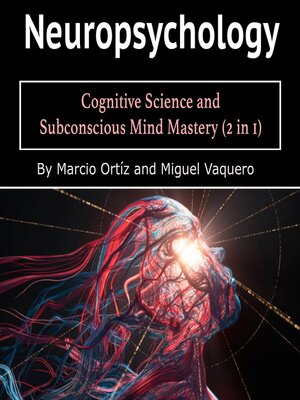Neuropsychology
audiobook (Unabridged) ∣ Cognitive Science and Subconscious Mind Mastery (2 in 1)
By Marcio Ortíz

Sign up to save your library
With an OverDrive account, you can save your favorite libraries for at-a-glance information about availability. Find out more about OverDrive accounts.
Find this title in Libby, the library reading app by OverDrive.



Search for a digital library with this title
Title found at these libraries:
| Loading... |
This title contains 2 books about similar topics, which are the following:
1: Your subconscious is a priceless potential repository of information, insight, and wisdom. But the majority of us never use that talent to its fullest.
Using hypnosis, you can access your subconscious. You can communicate with it immediately when under hypnosis. This can assist you in obtaining important knowledge and bringing about positive changes in your life.
Your subconscious is the area of your mind that generally escapes your awareness yet has a significant impact on how you live.
For instance, your subconscious has a role in controlling such essential bodily processes as breathing and heartbeat.
When you shake your head unconsciously, look away when lying, or suddenly get an inspiring thought "out of the blue," these are all signs that your subconscious is at work.
Additionally, you may not even be aware of the ideas and emotions stored in your subconscious, yet they can have a significant impact on your behavior and general well-being.
2: The study of the anatomy and operation of the nervous system and the brain is known as neuroscience. To map the brain mechanistically, neuroscientists draw on cellular and molecular biology, anatomy and physiology, human behavior and cognition, and other fields.
Each neuron, or brain cell, in an adult human has an estimated 100 billion connections to other neurons. The mapping of all the cell-to-cell communication networks—the brain circuits that process all ideas, feelings, and behaviors—remains one of the major difficulties of contemporary neuroscience. The resulting image that gradually forms is referred described as "the connectome". All learning is based on the brain's capacity to build new neural circuits and connections, or neuroplasticity".






